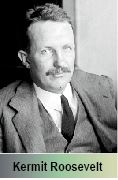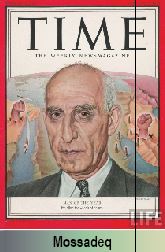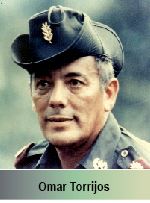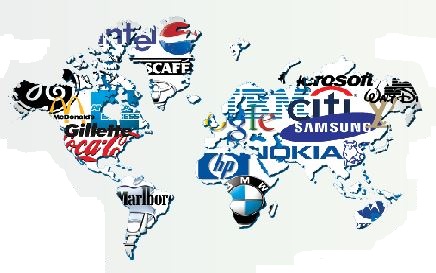 The terrible event of September 11, 2001, convinced John Perkins to drop the veil of secrecy around his life as an economic hit man, to ignore the threats and bribes, and write his book, Confessions of an Economic Hit Man. He believes he has a responsibility to share his insider knowledge of the role the US government, multinational “aid” organizations and corporations are playing in the promotion of a global empire. As an economic hit man, John Perkins traveled all over the world and was either a direct participant in or witness to some of the most dramatic events in modern history. (Editor’s note: Mr. Perkins’ religious beliefs are New Age. The Pilgrims of St. Michael neither support or share these beliefs. This does not negate the validity of his part in world affairs as an economic hit man and former Chief Economist for Chas T. Main Inc.)
The terrible event of September 11, 2001, convinced John Perkins to drop the veil of secrecy around his life as an economic hit man, to ignore the threats and bribes, and write his book, Confessions of an Economic Hit Man. He believes he has a responsibility to share his insider knowledge of the role the US government, multinational “aid” organizations and corporations are playing in the promotion of a global empire. As an economic hit man, John Perkins traveled all over the world and was either a direct participant in or witness to some of the most dramatic events in modern history. (Editor’s note: Mr. Perkins’ religious beliefs are New Age. The Pilgrims of St. Michael neither support or share these beliefs. This does not negate the validity of his part in world affairs as an economic hit man and former Chief Economist for Chas T. Main Inc.)
* * *
We economic hit men have really been responsible for creating this first, truly global, empire and we worked in many different ways. Perhaps the most common is that we will indentify a country that has resources our corporations covet (like oil) and then arrange huge loans to that country from the World Bank or one of its sister organizations. But the money never actually goes to the country, instead it goes to our big corporations to build infrastructure projects in that country; power plants, industrial ports, things that benefit a few rich people in addition to our corporations but really don’t help the majority of people.
 However, those people (the whole country), are left holding a huge debt. It’s such a big debt they can’t repay it and that’s part of the plan (that they can’t repay it). And so at some point, we economic hit men go back to them and say, “Listen, you lost a lot of money, you can’t pay your debt so sell your oil very cheap to our oil companies, allow us to build a military base in your country or send troops in support of ours to some place in the world like Iraq or vote with us in the next UN (United Nations) vote; we induce them to have their electric utility company privatized and their water and sewage system privatised and sold to US corporations or other multinational corporations. So it mushrooms and its typical of the way the IMF (International Monetary Fund) and the World Bank work: they put a country into such big debt that they can’t pay it, and then you offer to refinance that debt, and pay even more interest and demand this quid pro quo which you call a conditionality or “good governance,” which means basically that they have to sell off their resources, including many of their social services, their utility companies, their school systems, their penal and insurance systems; to foreign corporations. So it’s a double, triple, quadruple whammy!
However, those people (the whole country), are left holding a huge debt. It’s such a big debt they can’t repay it and that’s part of the plan (that they can’t repay it). And so at some point, we economic hit men go back to them and say, “Listen, you lost a lot of money, you can’t pay your debt so sell your oil very cheap to our oil companies, allow us to build a military base in your country or send troops in support of ours to some place in the world like Iraq or vote with us in the next UN (United Nations) vote; we induce them to have their electric utility company privatized and their water and sewage system privatised and sold to US corporations or other multinational corporations. So it mushrooms and its typical of the way the IMF (International Monetary Fund) and the World Bank work: they put a country into such big debt that they can’t pay it, and then you offer to refinance that debt, and pay even more interest and demand this quid pro quo which you call a conditionality or “good governance,” which means basically that they have to sell off their resources, including many of their social services, their utility companies, their school systems, their penal and insurance systems; to foreign corporations. So it’s a double, triple, quadruple whammy!
The precedent for economic hit men really began back in the early 1950’s when democratically-elected Mossadeq was elected in Iran. He was considered to be the “hope for democracy” in the Middle East and around the world. He was Time Magazines’ Man of the Year. But one of the things that he had run on, was that he would implement the idea that foreign oil companies needed to pay the Iranian people a lot more for the oil that they were taking out of Iran. The Iranian people should benefit from their own oil (strange policy)!
 We didn’t like that of course but we were afraid to do what we were normally doing, which was to send in the military. Instead we sent in one CIA agent, Kermit Roosevelt, Teddy Roosevelt’s relative. Kermit went in with a few million dollars and was very, very effective and efficient. In a short time, he managed to get Mossadeq overthrown and brought in the Shah from Iran to replace him. The Shah was always favourable to oil, and this was extremely effective.
We didn’t like that of course but we were afraid to do what we were normally doing, which was to send in the military. Instead we sent in one CIA agent, Kermit Roosevelt, Teddy Roosevelt’s relative. Kermit went in with a few million dollars and was very, very effective and efficient. In a short time, he managed to get Mossadeq overthrown and brought in the Shah from Iran to replace him. The Shah was always favourable to oil, and this was extremely effective.
So back here in the United States and in Washington, people looked around and said: “Wow, that was easy... and cheap!” And so, this established a whole new way of manipulating countries and creating empires. The only problem with Roosevelt was that he was a card-carrying CIA agent and had he been caught, the ramifications could have been pretty serious. So very quickly at that point, the decision was made to use private “consultants” to channel the money through the World Bank, the IMF or one of the other financial agencies to bring in people like me who worked for private companies so that if we got caught, there would be no governmental ramifications.
When Jacobo Arbenz became president of Guatemala, the country was very much under the thumb of the United Fruit Company and other big international corporations. Arbenz ran on this ticket, saying that “we have to get this land back to the people,” and once he took power he was implementing policies that would do exactly that, give the land rights back to the people. United Fruit didn’t like that very much and so they hired a public relations firm and launched a huge campaign in the United States to convince the citizens of the United States, the press and Congress that Arbenz was a Soviet puppet and that if we allowed him to stay in power, the Soviets would have a foot-hold on the southern hemisphere and in that point in time, this was a huge fear on everyone’s mind: the Red Terror, the Communist Terror.
And so, to make a long story short, out of this “public relations” campaign came a commitment on the part of the CIA and the military to take this man out and in fact we did, we sent in planes, we sent in soldiers, we sent in jackals, we sent in everything to take him out and we did take him out. As soon as he was removed from office, the new guy that took over after him basically reinstated everything in favor of the big international corporations, including United Fruit.
Ecuador for many, many years had been ruled by pro-US dictators, often relatively brutal. Then it was decided that they were going to have a truly democratic election. Jaime Roldos ran for office and his main goal as president, he said, would be to make sure that Ecuador’s resources were used to help the people and he won, overwhelmingly more so than anyone had ever won anything in Ecuador.
And he began to implement these policies to make sure that the profits from oil went to help the people. Well, we didn’t like that. I was sent down as one of several economic hit men to change Roldos, to corrupt him and to let him know that, “you can get very rich, you and your family, if you play our game. But if you continue to keep the policies you promised, you’re going to go.” He wouldn’t listen and was assassinated.
As soon as the plane crashed, the whole area was cordoned off; the only people allowed around there were US military from a nearby base and some of the Ecuadorian military. When the investigation was launched, two of the key witnesses died in car accidents before they had a chance to testify, a lot of very, very strange things happened during the assassination of Jaime Roldos.
I, like most of the people who have really looked at this case, have no doubt that it was an assassination and of course, in my position as an economic hit man, I was always expecting something to happen to Jaime, whether it be a coup or an assassination I wasn’t sure, but I knew that he would be taken down because he was not being corrupted, he would not allow himself to be corrupted the way we wanted to corrupt him.
 Panama
PanamaOmar Torrijos, the president of Panama, was one of my favourite people, I really, really liked him, he was very charismatic and he really wanted to help his country. And when I tried to bribe him or corrupt him, he said: “Look, John; look, Juanito (he called me Juanito), I don’t need the money. What I really need is for my country to be treated fairly. I need for the United States to repay the debts that you owe my people for all the destruction that you have done here. I need to be in a position where I can help other Latin American countries win their independence and be free of this terrible presence from the North, you people are exploiting us so badly. I need to have the Panama Canal back in the hands of the Panamanian people. That’s what I want. And so, leave me alone. Don’t try to bribe me.”
In May of 1981, Jaime Roldos was assassinated and Omar Torrijos was very aware of this. Torrijos kept his family together and said, “I’m probably next but its ok because I have done what I came here to do, I’ve re-negotiated the Canal and it will now be in our hands.” We had just finished negotiating a treaty with Jimmy Carter.
In June of that same year, just a couple of months later, he also went down in an airplane crash, which there is no question was executed by CIA-sponsored jackals. A tremendous amount of evidence shows that one of Torrijas security guards handed him at the last moment as he was getting on the plane, a small tape-recorder that contained a bomb.
It is interesting to me how this system has continued pretty much the same way for years and years, except the economic hit men are getting better. Then we come up with, very recently, what happened in Venezuela. In 1998, Hugo Chavez was elected president, following a long line of presidents who had been very corrupt, and basically destroyed the economy of the country. Chavez stood up to the United States demanding that Venezuelan oil be used to help the Venezuelan people.
Well, we didn’t like that either. So, in 2002, a coup was staged. There is no question in my mind and most of our people’s minds that the CIA was behind that coup. The way that that coup was fomented was very reflective of what Roosevelt had done in Iran: paying people to go out in the streets to riot, to protest, to say that Chavez is very unpopular. If you can get a few thousand people to do that, television can make it look like it’s the whole country, and things start to mushroom. Except in the case of Chavez, he was smart enough and the people were so strongly behind him that they overcame it, which was a phenomenal moment in the history of Latin America. (Editor’s note: Chavez has since given in to the pressures of the big corporations. He is nothing less than a dictator, ruling with an iron fist. Of course, this is the reason why he is still in power!)
Iraq is a perfect example of how the system works. We economic hit men are the first line of defence, we go in and we try to corrupt the governments and get them to accept these huge loans which we then use as leverage to basically own them. If we fail, as I failed in Panama with Omar Torrijos and in Ecuador with Jaime Roldos, men who refused to be corrupted, then the second line of defence we send in are the jackals. The jackals will either overthrow governments or they assassinate the country’s leader and once that happens then a new government comes in and its going to toe the line because the new president knows what will happen if he doesn’t.
In the case of Iraq, both of those things failed. The economic hit men were not able to get through to Saddam Hussein and we tried very hard. We tried to get him to accept a deal that the house of Saud had accepted in Saudi Arabia but he wouldn’t accept it and so the jackals went in to take him out but they couldn’t do it, his security was very good. After all, he had at one time worked for the CIA. He had been hired to assassinate a former president of Iraq and failed but he knew the system. So in 1991 we sent in troops and took out the Iraqi military, we assumed at that point that Saddam Hussein was going to come around. We could have taken him out at that point but we didn’t want to. He’s the kind of strong man that we like, he controls his people and we thought he could control the Kurds and keep the Iranians in their border and keep pumping oil for us, and once we took out his military, he would come around.
So the economic hit men went back in, in the 90’s, without success. If they had success, he’d still be running the country. We would be selling him all the fighter jets, and anything else he wants. But they didn’t have success, the jackals couldn’t take him out so we sent in the military, and this time we did the complete job and took him out and in the process, created for ourselves some very, very lucrative construction deals. We had to reconstruct a country that we essentially destroyed. Which is a pretty good deal when you own essentially all the construction companies.
Iraq demonstrates the three stages: the economic hit men failed there, the jackals failed and as a final measure, the military went in. In that way we have really created an empire but we’ve done it in a very, very subtle, clandestine way. All the empires in the past were built on the military, and everybody knew they were building them. The French, the Germans, the Romans, the Greeks, they were proud of it and they always had some excuse like spreading civilization, spreading a religion, something like that. But they knew they were doing it!
 We don’t.
We don’t.The majority of the people in the United States have no idea that we are living from the benefits of a clandestine empire, that today there is more slavery in the world than ever before. You have to ask yourself, if it’s an empire than who is the emperor? Obviously our presidents of the United States are not emperors, an emperor is someone who is not elected, doesn’t serve a limited term and doesn’t report to anyone, essentially. So you can’t classify our presidents that way.
But we do have what I consider to be the equivalent of an emperor and that is called the Corporatocracy. The Corporatocracy is this group of individuals who run our biggest corporations and they really act as the emperor of this empire. They control our media through direct ownership or advertising; they control most of our politicians because they finance their campaigns, either through the corporations or through personal contributions that come out of the corporations. They are not elected, they do not serve a limited term, they don’t report to anybody and… at the very top of the Corporatocracy, you really can’t tell if a person’s working for a corporation or the government because they are always moving back and forth.
One minute you have a guy who is the president of a big construction company like Haliburton, and the next moment, he is vice-president of the United States... or we had the president who was in the oil business. And this is true whether you get democrats or republicans in office, you have them moving back and forth through the revolving door. And in a way, our government is invisible a lot of the time, and its policies are carried out by a corporation, on one level or another.
Again, the policies of the government are basically forged by the Corporatocracy and presented to the government and afterwards they become government policies. So it’s an incredibly cosy relationship. This isn’t a conspiracy theory type of thing, these people don’t have to get together and plot to do things; they all basically work under one primary assumption… and that is that they must maximise profits, regardless of the social and environmental costs.
This process is called globalization…
John Perkins